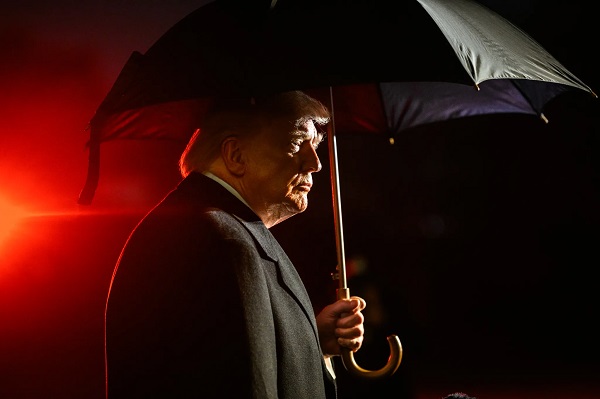.png)

Dr. Srinath Sridharan is a Corporate Advisor & Independent Director on Corporate Boards. He is the author of ‘Family and Dhanda’.
April 18, 2025 at 7:46 AM IST
The recent revelations surrounding the so-called “Signalgate” controversy in the United States unearth a troubling paradox. The inclusion of a journalist in a top-secret national security meeting does not merely raise procedural concerns; it exposes structural vulnerabilities in the digital architectures of even the most advanced nations.
This episode serves as a potent cautionary moment for States that continue to rely on extranational encrypted platforms. For India, a rising power with distinct geopolitical ambitions, it crystallises an urgent truth. A nation capable of pioneering Aadhaar and UPI cannot outsource sovereignty in encrypted communication to foreign architectures.
Strategic Paralysis
The irony is stark. Policymakers who champion encryption as a democratic ideal have failed to insulate their own national security deliberations from inadvertent exposure.
Signal, despite its encryption protocols, operates beyond sovereign oversight—a flaw India cannot afford to emulate.
Digital sovereignty has transcended the realm of theoretical discourse to become a cardinal pillar of twenty-first-century diplomacy. Control over encrypted communication channels is no longer a technocratic aspiration; it is integral to preserving strategic autonomy, particularly as India asserts itself as a civilisational power with distinct geostrategic imperatives and an independent foreign policy posture.
The global shift is unmistakeable. The European Union is actively exploring alternatives to commercially-driven encrypted applications. China and Russia, recognising the risks inherent in technological asymmetry, have long operationalised domestic systems.
The continued absence of a sovereign, state-mandated encrypted platform in India engenders strategic opacity at the highest levels of governance. Sovereign encryption must transition from rhetoric to institutional mandate—a purpose-built system tailored to its unique security, diplomatic, and administrative architecture.
Critics will cite fiscal and logistical hurdles, but the strategic calculus is unambiguous. The cost of inaction—intellectual theft, economic coercion, and strategic destabilisation—far exceeds the investment required to build and sustain a sovereign encryption network.
Consider India’s innovation pipelines, financial networks, or critical infrastructure: all demand insulation from extraterritorial compliance regimes. States that have pursued this path have done so not only to bolster national security but also to future-proof their economic ecosystems.
The Road Ahead
Yet, the architecture alone is insufficient. A sovereign system must seamlessly integrate cryptographic robustness with operational agility. It must be subjected to relentless stress testing and independent audit, ensuring its resilience against evolving threat vectors.
Adoption must be non-negotiable across defence, diplomacy, intelligence agencies, and executive leadership, since fragmented adherence breeds vulnerability.
Sovereign encryption will inevitably attract aggressive attempts at breach. Adversarial states and non-state actors will seek to infiltrate or incapacitate the system. But resilience will hinge on three pillars.
First, the cryptographic core must be built on quantum-resistant and post-classical foundations, anticipating threats. Second, the system must adopt a decentralised security model that limits single-point failures and supports adaptive defences. Third, it must be subject to continuous adversarial testing by both domestic experts and vetted international allies, ensuring that its safeguards evolve with the threat landscape.
Signalgate is not merely about procedural laxity—it is a piercing reminder of the foundational risks embedded in digital dependence. For India, the lesson is unequivocal: the absence of encryption sovereignty is not a technical oversight—it is a strategic vulnerability.
A nation that engineered a biometric identity for 1.4 billion people can certainly architect a sovereign encryption framework. What it needs now is political will. It is time to elevate encrypted sovereignty to the status of a national priority.
The stakes transcend technology. Encryption sovereignty is the new frontier of strategic autonomy—a nation’s ability to govern without fear of digital exposure. The choice is clear: build or remain beholden.




